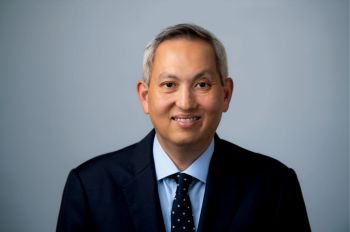IIT Partners in Global Dialogue on Tomorrow's Technology
Illinois Institute of Technology’s (IIT) Center on Nanotechnology and Society is joining a new Washington, DC-based think tank, the Center for Policy on Emerging Technologies (C-PET), and the University of Ulster to sponsor a global dialogue, when leading figures from government, risk management, non-profits and the academic world will come together from both sides of the Atlantic to brainstorm our response to tomorrow’s technologies, later this month in London.
The roundtable will be moderated by Nigel Cameron, research professor at IIT and director of its Center on Nanotechnology and Society. “Americans have hardly begun to think through the implications of such technologies as artificial intelligence and synthetic biology, which look like science fiction but are fast becoming science fact,” Cameron says. “The next decade will set the pace for developments each one of which could prove as revolutionary as the internet, but there will be many of them and they will come faster and faster.”
Cameron recently edited a guide about the social implications of nanotechnology with IIT professor and director of the Institute of Psychology, M. Ellen Mitchell. “Unless we are all better informed and our leaders a lot more interested, democracy will find it hard to cope with a succession of issues that could each prove as divisive as the stem cell war,” Cameron added.
Participants in the dialogue will include the director of the Global Science Forum of Organisation for Economic Co-operation and Development (OECD) , renowned risk management guru D.K Matai, lawyer and bioethics expert Sigrid Frye-Revere from Washington’s Cato Institute, and the European Commission’s lead ethics adviser, Maurizio Salvi.
A report about the invitation-only meeting will be published at a later date.
Founded in 1890, IIT is a Ph.D.-granting university with more than 7,300 students in engineering, sciences, architecture, psychology, design, humanities, business and law. IIT's interprofessional, technology-focused curriculum is designed to advance knowledge through research and scholarship, to cultivate invention improving the human condition, and to prepare students from throughout the world for a life of professional achievement, service to society, and individual fulfillment. Visit www.iit.edu.




